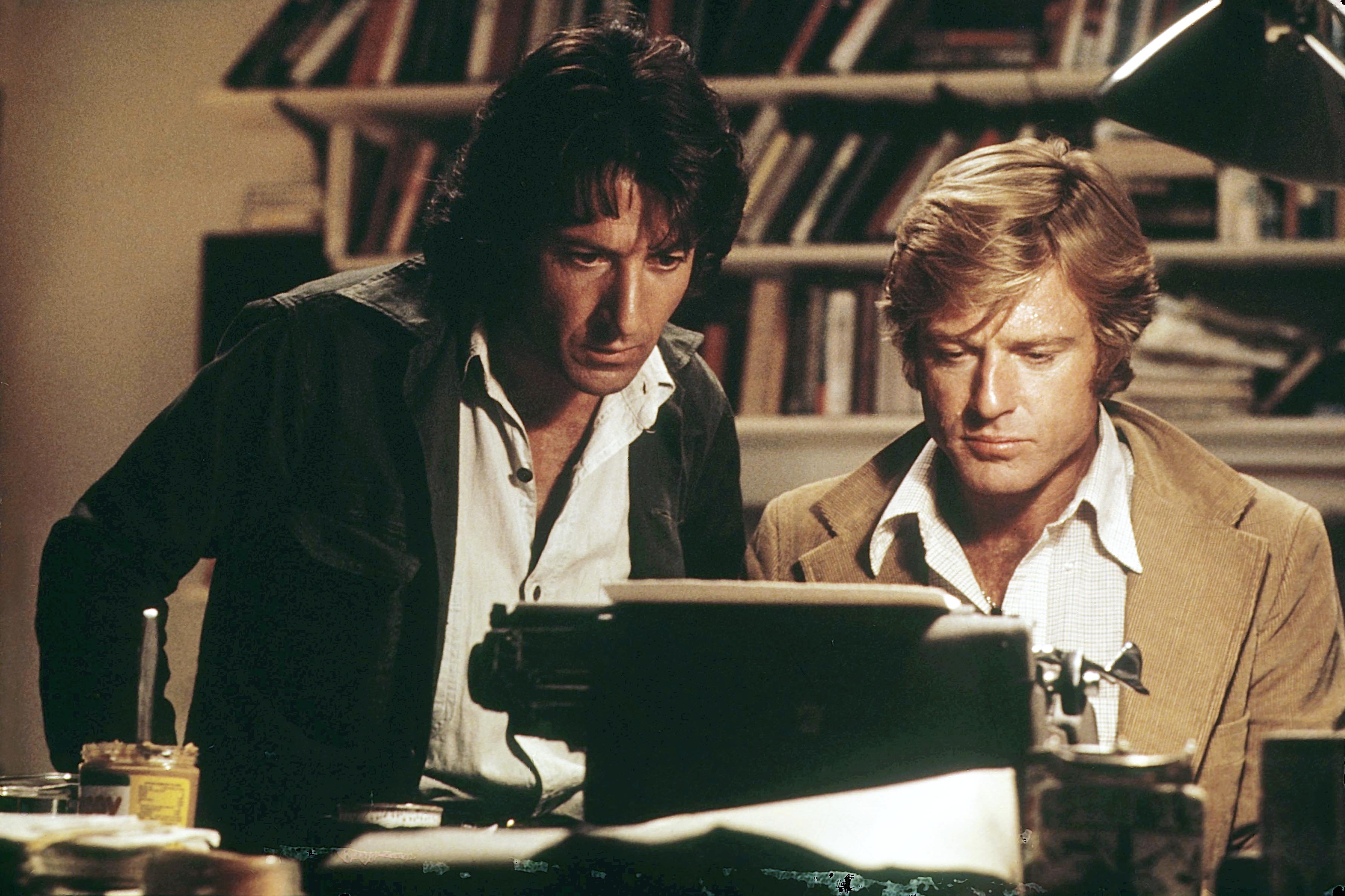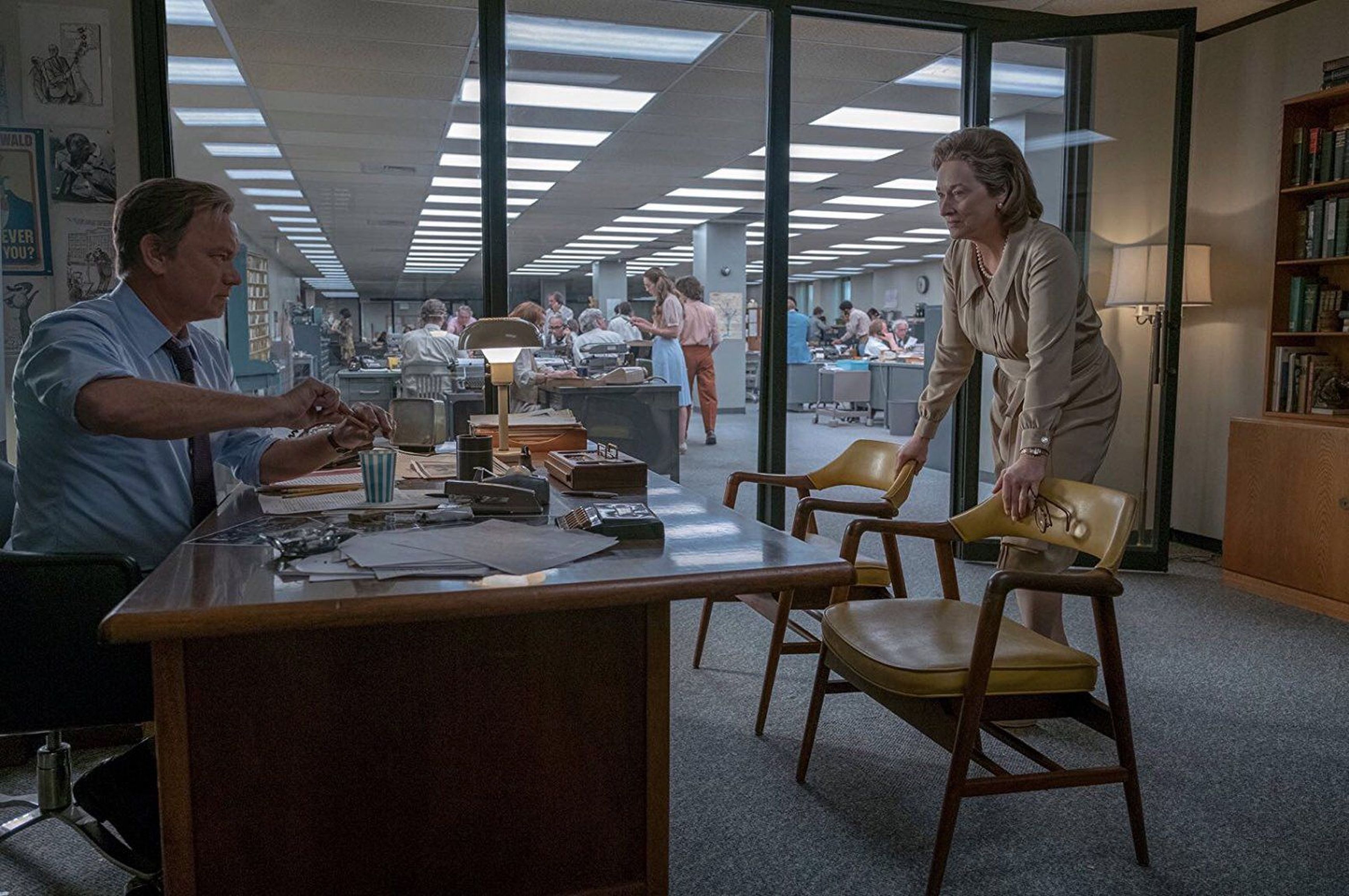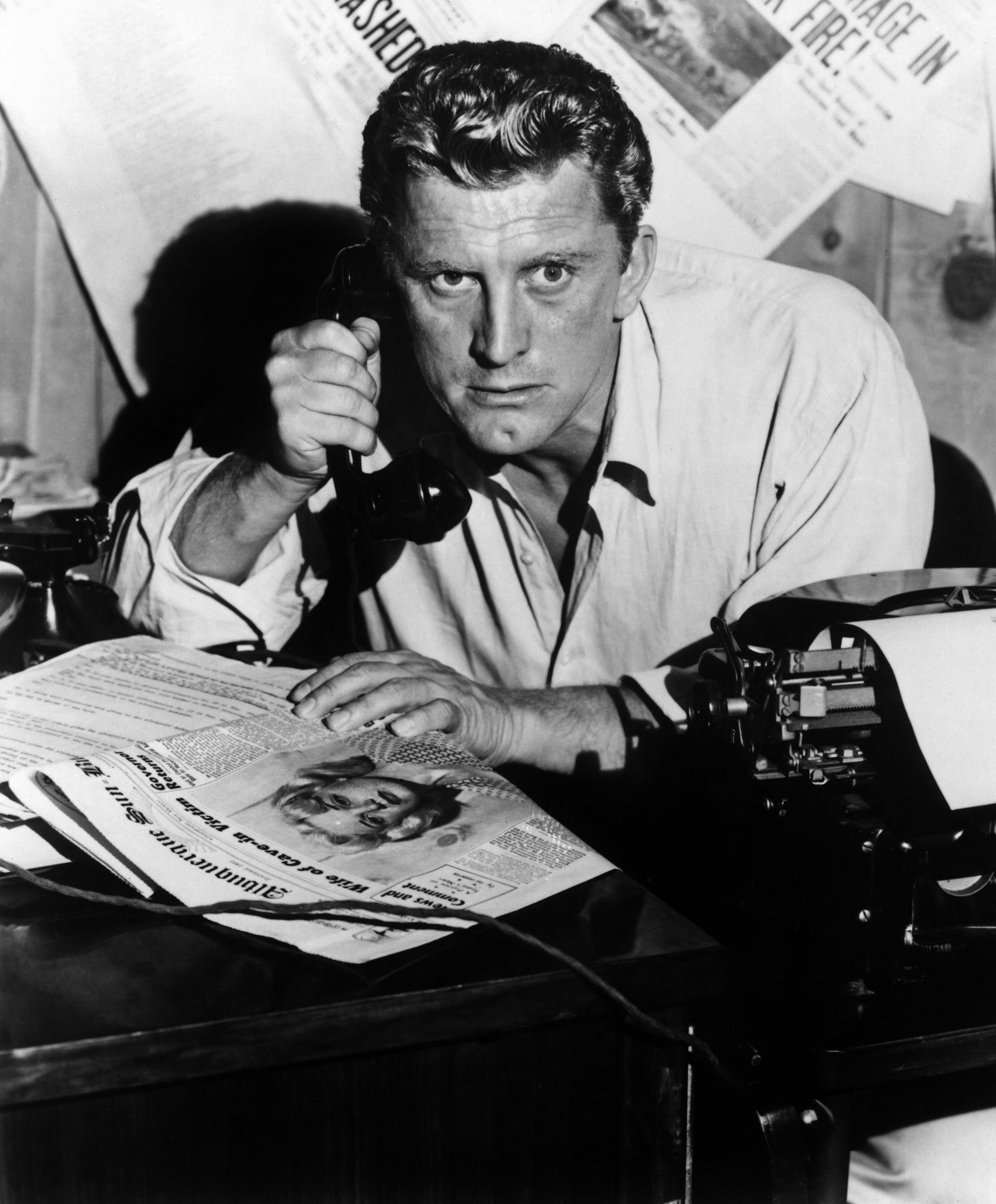Journalists on screen: An exalted calling or unscrupulous figures looking for a scoop?
As Carey Mulligan and Zoe Kazan star as the ‘New York Times’ journalists who brought down Harvey Weinstein in ‘She Said’, which receives its UK premiere at the London Film Festival next month, Geoffrey Macnab looks at the extreme ambivalence Hollywood feels when it comes to depicting hacks in films

In her autobiographical novel Heartburn, Nora Ephron famously describes the character based on her ex-husband Carl Bernstein as “being capable of having sex with a Venetian blind”.
It wasn’t a good look for Bernstein. In addition to being Ephron’s spouse, he was also the investigative reporter who, together with his colleague Bob Woodward at The Washington Post, brought down US President Richard Nixon. In the movie All The President’s Men (1976), adapted from the duo’s 1974 book about the Watergate scandal, the then-unknown reporter was portrayed by Dustin Hoffman as “sceptical, hungry” and “insatiably curious” in the words of one reviewer. Now, his ex-wife was describing him with his trousers down. In the 1986 Mike Nichols adaptation of Heartburn, he was played by Jack Nicholson as a charming but lecherous figure who cheats on his pregnant wife.
These two contrasting portrayals sum up perfectly the extreme ambivalence Hollywood feels when it comes to depicting journalists on screen. Either they are idealistic conquering heroes, or they are consummate sleazeballs. She Said, a UK premiere at the London Film Festival next month, is one of several recent features to cast reporters in an idealised light. The film, made by German director Maria Schrader, follows The New York Times’ Megan Twohey and Jodi Kantor – played by Carey Mulligan and Zoe Kazan, respectively – as they investigate movie producer Harvey Weinstein’s sexual assault scandal.
Like Hoffman and Robert Redford in All The President’s Men, Kazan and Mulligan are de-glamorised in their roles. They’re presented as decent, hard-working women who will chase every lead available. At first, none of Weinstein’s victims, whether big names or former assistants, will go on record. Many of the producer’s victims have signed non-disclosure agreements and his heavyweight lawyers attempt to shred the reputations of anyone who dares criticise him. The journalists face intimidation, obfuscation and legal threats. Nevertheless, the duo perseveres, showing dogged determination and ingenuity. They are, as the London Film Festival blurb describes them, “a brainy tag team and the very image of ethical journalism”. Their stories for The New York Times not only topple Weinstein but win them a Pulitzer Prize with their investigation exposing the sheer scale of sexual harassment within the media industry.
But the ironies are obvious. “What have you got?” Kantor is asked by her editor in one scene. “I was told that the wrong-doing in Hollywood is overwhelming,” the journalist replies primly, sounding as if she has just discovered what bears do in the woods. She Said is precisely the type of crusading, actor-driven, award-contending film that Weinstein himself might once have supported… if he wasn’t its subject and villain. This is Hollywood turning in on itself. The film’s backers used to swim in exactly the same waters as Weinstein. Its producers Plan B (run by Dede Gardner and Brad Pitt) collaborated with The Weinstein Company on the 2012 crime thriller Killing Them Softly. Its distributors, Universal, also worked with Weinstein, for example, on Quentin Tarantino’s Inglourious Basterds (2009).
Stars and key witnesses against Weinstein like Ashley Judd and Gwyneth Paltrow – who were either harassed themselves by the producer or witnessed his misdeeds – feature prominently in both the reporting by Kantor and Twohey and their subsequent book, She Said. However, they are not listed in the film’s credits. It might have been too jarring to have such well-known faces portrayed by other actors, and indeed it would have seemed very strange to have them playing themselves.
Followers of the Jeffrey Epstein sex trafficking scandal may be confused to discover the lawyer Lisa Bloom, who represented several of Epstein’s victims in court, also worked for Weinstein. Bloom (played by Anastasia Barzee in She Said) comes out particularly badly in Twohey and Kantor’s book. She drafted a notorious memo on Weinstein’s behalf about how best to counter the threat from actor and activist Rose McGowan, one of the disgraced mogul’s most outspoken accusers. “We can place an article re her becoming increasingly unglued, so that when someone Googles her this is what pops up and she’s discredited,” Bloom recommended.
She Said is one of the first Hollywood films about journalists set in the social media age and yet it is still being presented as a traditional newspaper drama. It is full of familiar scenes: reporters having doors slammed in their faces, being slipped documents by their sources at secret meetings, and marching forcefully across the newsroom floor as a deadline looms. The film is in a similar vein to Tom McCarthy’s Spotlight, the 2015 Oscar-winner about the Boston Globe’s investigations into sexual abuse by Catholic priests, as well as Steven Spielberg’s The Post (2017), which focused on how The Washington Post got hold of the “Pentagon Papers” and exposed government corruption during the Vietnam War.

Recent documentaries have likewise shown journalists standing up gamely against corruption and vested interests. Romanian director Alexander Nanau’s riveting, Oscar-nominated Collective (2019) explores the aftermath of a 2015 fire at a nightclub in Bucharest that resulted in many deaths. Evidence of corruption, fraud, and incompetence in Romania’s health service and in the top tiers of government is turned up by a scrupulous reporter. The inspiring Indian documentary Writing with Fire (2021), also Oscar-nominated, follows a digital news agency in Uttar Pradesh in India, run by women journalists from the low caste Dalit community who overcome endemic chauvinism and corruption. Their reporting transforms the lives of many small rural communities.
Journalism, then, is still being presented on screen as an exalted calling. No one in any of these films is shown having sex with a Venetian blind. Countering such high-minded screen portrayals, though, are the many movies about journalists behaving very badly. These have been produced for almost as long as Hollywood has been in existence. One explanation for this glut is that they were written or directed by former reporters with first-hand experience of how seamy the profession could become.
Ben Hecht, the Chicago reporter who became one of Hollywood’s highest-paid screenwriters from the late 1920s onwards, helped fix the clichéd screen image of journalists as fast-talking, hard-drinking, amoral figures who will do anything for a scoop. Hildy Johnson, the star news reporter in The Front Page, a play co-written by Hecht, is very different from the journalists of She Said. As played by Rosalind Russell in Howard Hawks’s loose adaptation His Girl Friday (1940), Hildy is in the profession mainly for its adrenaline buzz. If she can save an innocent man from death row, that’s a bonus – but it’s the story she’s after. Hildy is engaged to be married but remains in love with her editor (Cary Grant), from whom she has recently divorced because he is the one man as ruthless as her.
But Russell’s Hildy is virtue incarnate compared to the struggling reporter played by Kirk Douglas in Billy Wilder’s Ace in the Hole (1951), who keeps a man trapped in a cave so he can get a big story out of it and rescue his career. Inevitably, the man dies. Burt Lancaster’s gossip columnist JJ Hunsecker in Alexander Mackendrick’s Sweet Smell of Success (1957) is even more unscrupulous. The character is based on Walter Winchell, the real-life journalist notorious both for the salacious cruelty with which he treated his celebrity targets and for his frequent inaccuracy. A 1940 profile of him in the New Yorker fact-checked his columns and revealed that only a small percentage of his stories were actually true.

The procession of films about rogue journalists bending the rules has continued since then. In Shattered Glass (2003), Hayden Christensen played The New Republic reporter Stephen Glass who, it turned out, was inventing many of his stories. Meanwhile, the 2013 documentary A Fragile Trust, told the cautionary tale of Jayson Blair, The New York Times journalist forced to resign after being found guilty of plagiarism. In 2014, George Clooney was announced as the director of Hack Attack, a planned movie adaptation of the Nick Davies book about British journalists at News of the World during the phone hacking scandal. The film looked like an intriguing counterpart to the director’s earlier Good Night, and Good Luck (2005), which followed the crusading journalist Ed Murrow as he fights back against the McCarthy witch-hunts. Sadly, Clooney’s project appears to have stalled.

More than 90 years after the first screen adaption of The Front Page (1931), Hollywood portrayals of journalists remain strangely unbalanced. Reporters continue to be shown either as secular saints or as contemptible low lives. The one filmmaker who acknowledged they could be both at the same time was Sam Fuller (1912-1997). Fuller’s 1952 feature Park Row, little seen today, has a fair claim as the purest, most affectionate newspaper movie ever made. Fuller had worked in newspapers himself from an early age and adored the profession. He was fully aware of the scams of tabloid reporters faking photos and contriving stories – but he also believed in the power of the free press. His film, set in the 1880s, has characters both as sleazy as those found in The Front Page and as high-minded as Twohey and Kantor in She Said. The main protagonist, the campaigning editor Phineas Mitchell (Gene Evans) relishes the boozing, brawling, and circulation wars but remains an uncompromising idealist.
The film opens (absurdly) with the names of the 1772 newspapers that then existed in the US. “One of them is the newspaper you read, all of them are the stars of this story,” the credits proclaim. These papers, Fuller was suggesting, were part of the fabric of daily life. In 2022, that claim no longer holds true. The power of the press has dwindled massively. Even so, Hollywood’s fascination with the profession endures – as does its uncertainty over how best to portray journalists. One moment, they’re bringing down corrupt politicians and toppling Hollywood’s most lecherous moguls. The next, you’ll find them disgracing themselves. Maybe even doing unspeakable things with those Venetian blinds.
‘She Said’ is on general release in UK cinemas on 22 November
Join our commenting forum
Join thought-provoking conversations, follow other Independent readers and see their replies
Comments


Bookmark popover
Removed from bookmarks